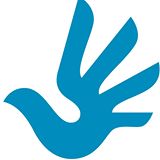Independent Media: Indigenous People in Guatemala
Location
State Farm Hall 108
Start Date
28-2-2015 1:50 PM
End Date
28-2-2015 2:45 PM
Description
Guatemala is inhabited by 22 Mayan linguistic-social groups. They form around the 50% of the total population of fourteen million people. Nevertheless, for over five centuries, indigenous people in Guatemala, have been excluded from political and economic decision making. During Guatemala's civil war, from 1960 to 1936, around 200,000 of them were assassinated or disappeared. At the end of the war the state promised to improve education, cultural rights and levels of political participation for-indigenous people. However, they still remain vulnerable to the state's repression. When they organize protests to call for change in the state, they end up being suppressed by the State's police force. Dozens of indigenous leaders have been imprisoned, killed or kidnapped. Their only Clime is having been born with Mayan blood and having the courage to fight for their lights. The government also suppresses the Mayan people's voices through the media, which is controlled by an elite that doesn't allow indigenous people to claim their rights. But during the first two decades of the 21st century, Independent Media has become a powerful tool for the Mayan people to talk about these issues from their own perspectives. This has gained the attention of scholars, NGOs and people that otherwise wouldn't be informed about the Indigenous struggles. I have begun my research through readings and in the coming months I intend to conduct interviews with indigenous leaders in Guatemala, and incorporate their voices into the analysis.
Independent Media: Indigenous People in Guatemala
State Farm Hall 108
Guatemala is inhabited by 22 Mayan linguistic-social groups. They form around the 50% of the total population of fourteen million people. Nevertheless, for over five centuries, indigenous people in Guatemala, have been excluded from political and economic decision making. During Guatemala's civil war, from 1960 to 1936, around 200,000 of them were assassinated or disappeared. At the end of the war the state promised to improve education, cultural rights and levels of political participation for-indigenous people. However, they still remain vulnerable to the state's repression. When they organize protests to call for change in the state, they end up being suppressed by the State's police force. Dozens of indigenous leaders have been imprisoned, killed or kidnapped. Their only Clime is having been born with Mayan blood and having the courage to fight for their lights. The government also suppresses the Mayan people's voices through the media, which is controlled by an elite that doesn't allow indigenous people to claim their rights. But during the first two decades of the 21st century, Independent Media has become a powerful tool for the Mayan people to talk about these issues from their own perspectives. This has gained the attention of scholars, NGOs and people that otherwise wouldn't be informed about the Indigenous struggles. I have begun my research through readings and in the coming months I intend to conduct interviews with indigenous leaders in Guatemala, and incorporate their voices into the analysis.


